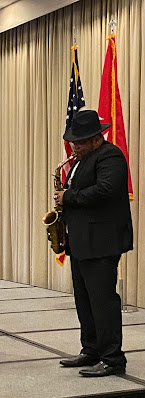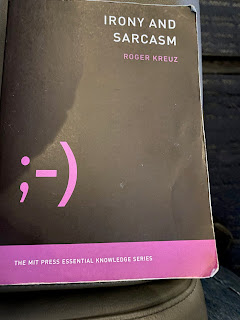English Literature in the Sixteenth Century excluding drama by C.S. Lewis
The longest book of the more than forty books written by C.S. Lewis in his lifetime, took more than forty years for me to finish reading.
I first read a few pages from English Literature in the Sixteenth Century excluding drama in my semester as a full-time student in 1980. In my Western Traditions II class, taught by Theodora Graham, we read the Norton Critical Edition of Utopia by Sir Thomas More.
Among the dozen critical essays in the back was an excerpt from Lewis's history. Amid essays claiming More was a communist, a socialist, an authoritarian and number of other political positions that mostly did not exist in the 16th Century, Lewis said the key to understanding the book was the magic map. He said the book was written for friends who shared More's taste for creating worlds--with magic maps.
It was a refreshing and fun essay in the midst of others with very long faces.
Twenty years later I read the long first chapter of the book, which is a wonderful summary of the century and its politics and religion. But I put the book down and did not read it except as a reference until this year. Then I decided to finish it.
Lewis read everything and everyone who published prose and poetry in the 16th Century in English. More than one reviewer said Lewis found the only good lines of poetry ever written by some very bad poets.
Lewis wrote about More and Tyndale as prose writers, and as martyrs. Tyndale, the Protestant, translated the Bible into English. His translation makes up a lot of what would become known as The King James Bible published in the early 17th Century.
More, a Catholic, wrote in defense of his Church. Both men faced death by torture and burning at the stake worried whether they would break under torment. But neither thought the concept of punishing heresy by death was inherently wrong, even when they were waiting in cells for execution. When we read old books, we are reading a whole world of different assumptions about life and the universe.
The final 200 pages of the book, 'Golden,' is divided into three sections: Seventy pages on Philip Sydney and Edmund Spenser, seventy pages on Prose in the 'Golden' Period, and sixty pages on Verse in the 'Golden' Period.
At several points, Lewis analyzes a sonnet cycle and says where the poet missed the mark in form or content. Sometimes in relation to the standard of that era, the sonnets of Francesco Petrarch. Then on page 502, after several pages on Shakespeare's longer verse, the first paragraph begins:
Shakespeare would be a considerable non-dramatic poet if he had only written Lucrece: but it sinks almost to nothing in comparison with his sonnets. The sonnets are the very heart of the Golden Age, the highest and purest achievement of the golden way of writing.
Lewis continues for another seven pages explaining why Shakespeare's sonnets are "the very heart of the Golden Age."
At this point I stopped reading this book, got a copy of Sonnets and started reading them aloud. It has been years since I read them. They are beautiful.
As with any book this comprehensive, we can read pieces of the book we care about and omit the rest. Anyone interested in the history of literature or in late Medieval Europe can enjoy the introduction "New Learning and New Ignorance." This 66 page essay could be a short history book all by itself.
Since I have read and loved so many Medieval works, Book I. Late Medieval, was interesting for me just as history of how literature was changed by the break up of the Church and subsequent religious wars and controversies.
Book II. 'Drab' is repellent just by the title. But it is in this section we learn about Tyndale and More. Reading Lewis on bad poets is interesting just to see how he handles the material.
Book III. 'Golden' is why we read history. Lewis pulls together all the threads of culture, society, religion, and literature and weaves a narrative to show us in detail how English Literature dragged along for a half century and suddenly flowered in a way no one could have anticipated.
Enjoy!















